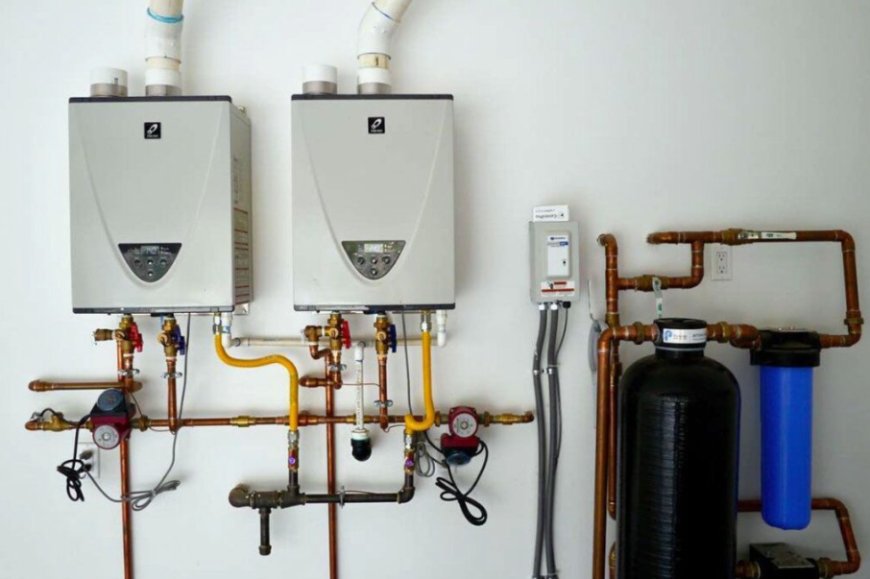"Water Heater Purification for Well Water Users: Special Tips"
Well water often contains minerals and bacteria. This article shares tips for extra purification steps if you rely on a well.

Clean hot water is something we often take for granteduntil its gone. Over time, water heaters can accumulate sediment, rust, bacteria, and minerals that compromise water quality and even damage the heater itself. Thats where water heater purification comes in. This process helps ensure your hot water is not only warm but also clean and safe to use.
In this blog, well explain how water heater purification works, its benefits, and how often it should be done. Whether youre a homeowner, landlord, or facility manager, this guide will help you make informed decisions for healthier water and longer-lasting equipment.
What Is Water Heater Purification?
Water heater purification refers to the process of cleaning and treating your water heater to remove impurities like mineral buildup, rust, bacteria, and sediment. These contaminants can affect water quality, reduce heater efficiency, and lead to unpleasant odors or discoloration in your water.
It typically involves flushing the tank, adding purification filters or agents, and sometimes using UV or chemical treatments. Regular water heater purification not only improves the water but also extends the life of your heater.
Why Is It Important to Purify Your Water Heater?
Ignoring your water heater's cleanliness can lead to bigger issues. Bacteria can multiply in warm water tanks, especially in older models. Sediment buildup makes the heater work harder, increasing energy bills and the risk of damage.
By investing in water heater purification, youre ensuring better water quality for bathing, cooking, and cleaningwhile also protecting your appliance. Its a small step that can prevent large problems.
Signs That Your Water Heater Needs Purification
Not sure if your water heater needs attention? Watch out for these warning signs:
-
Cloudy or discolored hot water
-
Strange odors from hot water taps
-
Unusual noises like popping or rumbling from the tank
-
Reduced hot water output
-
Visible rust or buildup in faucet strainers
These symptoms often indicate that impurities are affecting your system. Scheduling a water heater purification can restore both performance and water quality.
How the Purification Process Works
There are several methods used to purify a water heater, depending on the type and condition of the system:
-
Tank Flushing Draining and flushing out the tank removes sediment and debris.
-
Filter Installation Adding inline filters helps trap minerals before they reach the heater.
-
Chemical Treatment Specialized cleaning agents remove buildup and kill bacteria.
-
UV Purification UV systems sterilize the water, preventing bacterial growth.
A professional plumber can recommend the best water heater purification method for your system.
How Often Should You Purify Your Water Heater?
Most experts recommend purifying your water heater at least once a year. However, if you live in an area with hard water or use well water, you may need to do it more oftenevery 6 months may be ideal.
Regular purification helps avoid premature wear and ensures your hot water stays clean and safe. Adding this step to your annual home maintenance routine can save money in the long run.
DIY vs. Professional Water Heater Purification
While some homeowners attempt to flush their own water heaters, professional service is often the safer and more thorough option. Pros have the tools and expertise to spot issues like corrosion, leaks, or faulty components that you might miss.
If you're unsure or uncomfortable handling pressurized tanks and hot water, hiring a technician for water heater purification is a smart move. It ensures the job is done rightand safely.
FAQs
Q1: Can I purify my tankless water heater?
A: Yes, tankless heaters also need purification to remove mineral scale and keep the unit working efficiently. Special descaling solutions are often used.
Q2: What happens if I never purify my water heater?
A: You may experience lower efficiency, dirty water, heater breakdowns, or even harmful bacteria growth like Legionella in stagnant tanks.
Q3: Does purification improve water taste?
A: While purification focuses on safety and efficiency, it may also remove elements causing metallic or sulfur-like tastes.
Q4: Is water heater purification the same as water softening?
A: No. Softening removes minerals from the water supply before it enters the heater. Purification focuses on cleaning the heater itself.
Q5: How do I know which purification method is best for my system?
A: A licensed plumber can inspect your heater and recommend a tailored purification plan based on age, condition, and water type.
Conclusion
Water heater purification might not be something you think about every day, but it plays a big role in your home's water quality and your heaters performance. From preventing buildup to eliminating harmful bacteria, regular purification is a must for healthy, efficient living.
Take action before small problems turn into costly repairs. Schedule an annual purification, or consult a professional for advice on the best approach for your system.





































